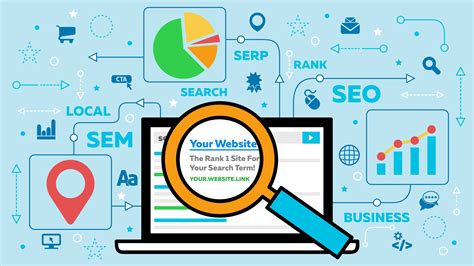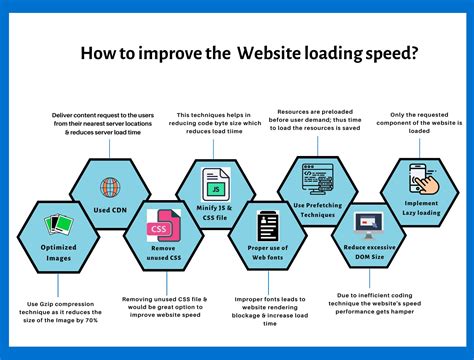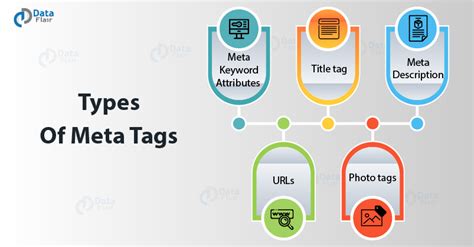Welcome to this comprehensive guide, where we will discuss effective strategies to enhance your online presence, attract more visitors to your website, and elevate your website's ranking on search engines. In the digitally-driven world we live in today, having a strong online presence is crucial for any business or organization. This article will provide you with valuable insights and techniques to help you achieve these goals without emptying your wallet. So, let's delve into the intriguing world of website traffic and search engine optimization!
The primary focus of this guide is to offer you practical and ingenious ways to drive more organic traffic to your website and improve its search engine ranking. We will explore the intricacies of creating high-quality and engaging content, optimizing your website for search engines, and leveraging social media platforms to maximize your website's visibility. By employing these proven tactics, you can attract your target audience and ensure your website is easily discoverable by search engine algorithms.
Unmasking the secrets behind successful websites, we will dive into the art of on-page and off-page SEO optimization. You will learn the significance of strategic keyword research, the power of backlinks, and how to leverage the latest SEO techniques to propel your website to new heights. Moreover, we will shed light on the importance of website design and user experience, as they play a pivotal role in attracting and retaining visitors. By the end of this guide, you will have a comprehensive arsenal of tools and strategies to enhance your website's traffic and climb the ladder of search engine rankings.
Enhance your website's visibility on search engines

Discover effective strategies to boost your website's presence on popular search engines and increase its chances of reaching a wider audience.
1. Refine your website's keyword strategy:
Choose relevant keywords and phrases that accurately represent your website's content and incorporate them strategically into your website's meta tags, headings, and content. By optimizing your keyword strategy, search engines can better understand your website's purpose and relevance, improving your chances of ranking higher in search results.
2. Create high-quality and engaging content:
Produce well-written, informative, and original content that is valuable to your target audience. Engaging content can attract more visitors to your website and encourage them to stay longer, reducing bounce rates and signaling search engines that your website provides valuable information. Additionally, incorporate multimedia elements such as images and videos to enhance user experience.
3. Build a strong internal linking structure:
Implement a logical and relevant internal linking structure within your website. Linking relevant pages together helps users navigate your website easily, while also allowing search engines to crawl and index your website more efficiently. Additionally, internal links help distribute link authority throughout your website, boosting the visibility of all pages and increasing the chances of ranking higher in search results.
4. Optimize website loading speed:
Ensure that your website loads quickly to provide a seamless user experience. Slow-loading websites can negatively impact user satisfaction and increase bounce rates, which can lower your website's search engine rankings. Optimize your website's loading speed by compressing images, minimizing JavaScript and CSS files, and leveraging browser caching.
5. Earn high-quality backlinks:
Focus on obtaining high-quality backlinks from reputable websites within your industry. Backlinks are an essential factor in search engine algorithms and can significantly impact your website's rankings. Reach out to influential bloggers, participate in guest blogging opportunities, and create shareable content to attract natural backlinks from other websites.
6. Utilize social media platforms:
Engage with your target audience on various social media platforms to increase brand visibility and drive traffic to your website. Share your content, respond to comments, and establish yourself as an authoritative source within your industry. Social media signals can indirectly influence your website's organic rankings, as search engines recognize the popularity and relevance of your website based on social media activities.
Takeaway:
By implementing these strategies, you can optimize your website for search engines and improve its visibility, ultimately attracting more organic traffic and enhancing your website's overall performance and ranking.
Create Valuable and Relevant Content
One of the key factors in enhancing your website's visibility and optimizing its performance is by consistently producing high-quality and relevant content. By focusing on creating valuable information that resonates with your target audience, you can significantly improve your website's traffic and search engine ranking.
Deliver Valuable Insights: Craft your content in a way that provides valuable insights and answers the questions and concerns of your target audience. By offering unique perspectives and addressing their needs, you establish yourself as an authoritative source, increasing the likelihood of visitors returning to your site.
Utilize Relevant Keywords: Incorporating relevant keywords into your content helps search engines understand the purpose of your webpages, making it easier for them to rank your site in relevant search results. Remember to use keywords naturally throughout your content, ensuring that they fit seamlessly in the context without appearing forced or spammy.
Optimize for Readability: Make your content easy to read and understand by using clear and concise language. Break up your text into smaller paragraphs and utilize headings, bullet points, and numbered lists to improve readability. Additionally, include relevant multimedia content such as images, videos, and infographics to complement your text and enhance the overall user experience.
Showcase Expertise: Consistently producing high-quality content showcases your expertise and establishes credibility in your industry or niche. This can attract more visitors to your website and encourage other website owners to link to your content, improving your website's visibility and authority in the eyes of search engines.
Encourage Engagement: Engage with your audience by encouraging comments, social shares, and feedback. This not only fosters a sense of community but also increases user interaction and time spent on your website, which can positively impact your search engine ranking. Additionally, respond promptly and thoughtfully to comments and messages, creating a positive user experience and building trust with your audience.
By consistently creating high-quality and relevant content, you can establish your website as a valuable resource and ultimately improve your website's traffic and search engine ranking. Remember to stay updated on industry trends and constantly refine your content strategy to provide maximum value to your target audience.
Harness the Power of Social Media Marketing Techniques

With the ever-increasing reliance on digital platforms for information and entertainment, leveraging social media marketing strategies has become imperative for businesses looking to enhance their online presence. By effectively utilizing various social media platforms, businesses can not only drive significant traffic to their websites but also improve their overall ranking in search engine results. In this section, we will explore some valuable techniques to optimize your social media marketing efforts and maximize your website's reach and visibility.
- 1. Tap into Influencer Collaborations:
- 2. Engage and Interact with Your Audience:
- 3. Create Shareable and Engaging Content:
- 4. Leverage Social Media Advertising:
- 5. Optimize Your Social Media Profiles:
Collaborating with influential personalities or industry leaders can significantly boost your brand's visibility and credibility on social media platforms. Engaging with influencers who share the same target audience can help you reach a wider demographic and attract more relevant traffic to your website.
Building a strong rapport with your social media followers is crucial for driving traffic to your website. Regularly interacting with your audience by responding to comments, addressing queries, and initiating conversations can foster meaningful connections and encourage users to explore your website further.
Developing high-quality, informative, and visually appealing content is key to driving social media users to your website. By creating shareable content that resonates with your target audience, you can encourage users to share your posts, thereby amplifying your reach and driving more traffic to your website.
Investing in social media advertising allows you to target specific demographics and reach a wider audience beyond your existing followers. Utilizing paid promotional options such as sponsored posts, display ads, or push notifications can help drive more traffic to your website and increase your overall rankings.
Ensuring that your social media profiles are optimized with relevant keywords, consistent branding, and captivating descriptions is essential for attracting the right audience to your website. Optimized profiles can also improve your search engine rankings, making it easier for users to discover your brand.
Invest in targeted online advertising
Maximize your online visibility and reach a wider audience by strategically investing in targeted online advertising.
Enhance your website's performance and boost its visibility by utilizing the power of targeted online ads. By carefully selecting your target audience and defining your specific objectives, you can ensure that your ads reach the right people at the right time.
Capitalizing on various online advertising platforms and techniques such as search engine marketing (SEM), display advertising, and social media advertising, you can drive qualified traffic to your website and increase its ranking on search engine results pages.
Determine the most effective advertising channels that align with your target audience's online behavior and habits. Consider utilizing keyword targeting, retargeting, and demographic targeting to ensure the highest possible conversion rates and return on investment (ROI).
By continually analyzing and refining your advertising strategies, you can optimize your online ad campaigns and drive sustainable growth for your website. Investing in targeted online advertising is an effective way to improve your website's traffic and enhance its overall ranking in search engine results.
Enhance the Loading Speed of Your Website for Optimal Performance

In today's digital landscape, it is imperative to prioritize the speed at which your website loads. Delivering a seamless and lightning-fast user experience is crucial for attracting and retaining visitors, improving search engine rankings, and ultimately achieving the desired goals of your website. This section will delve into strategies and techniques that can be implemented to optimize the loading speed of your website, ensuring its overall performance is at its peak.
One of the fundamental aspects to consider in improving loading speed is optimizing the size and format of your website's assets, such as images, videos, and scripts. By compressing and resizing images without compromising quality, you can significantly reduce the overall file size, allowing for faster loading times. Similarly, minifying CSS and JavaScript files by removing unnecessary characters, spaces, and comments can streamline the rendering process and boost performance.
Another critical factor to address is the utilization of caching mechanisms. Implementing browser caching and server-side caching can greatly enhance loading speed by temporarily storing certain website elements on the user's device or server, respectively. This minimizes the need for repetitive downloads, resulting in faster subsequent visits and reduced server strain. Additionally, leveraging content delivery networks (CDNs) can distribute website content across multiple servers worldwide, ensuring faster delivery to users across different geographical locations.
Effective resource management is also essential in optimizing loading speed. By evaluating and optimizing the number and size of third-party scripts and plugins used on your website, you can prevent excessive bandwidth usage and improve overall performance. It is also crucial to regularly update and maintain your website's content management system (CMS), themes, and plugins to ensure they are compatible with the latest performance-enhancing technologies.
Moreover, reducing the number of HTTP requests required to load a webpage can have a significant impact on loading speed. Combining and minimizing CSS and JavaScript files, as well as utilizing image sprites, can optimize the process of retrieving website assets, resulting in faster loading times. Implementing asynchronous loading for non-essential components, such as social media widgets, can also prevent delays in rendering the main content of your webpages.
In conclusion, improving the loading speed of your website is vital for enhancing user experience, attracting more visitors, and achieving higher search engine rankings. By implementing various optimization techniques, such as compressing assets, utilizing caching mechanisms, managing resources effectively, and reducing HTTP requests, you can ensure your website performs optimally, providing visitors with a seamless and fast browsing experience.
| Benefits | Techniques | Considerations |
|---|---|---|
| Attracts and retains visitors | Optimizing image and file size | Regular updates and maintenance |
| Improves search engine rankings | Implementing caching mechanisms | Asynchronous loading of components |
| Enhances overall website performance | Managing third-party scripts and plugins | Reducing number of HTTP requests |
Boost Your Website's Authority with Quality Backlinks
In order to establish your website as a reputable and trustworthy source in the online world, it is essential to build backlinks from well-established and authoritative websites. Backlinks serve as a vote of confidence from other websites, indicating that your content is valuable and reliable.
By networking with reputable websites and obtaining backlinks from them, you can significantly enhance your website's visibility and ranking in search engine results pages. However, it is important to note that not all backlinks are equal. Quality backlinks from trusted sources hold much more weight than numerous backlinks from low-quality or spam websites.
One effective way to generate quality backlinks is through guest posting. By offering to provide valuable and informative content for reputable websites in your niche, you can secure backlinks to your own website within your guest posts. This not only drives traffic to your site but also enhances your credibility as a knowledgeable source in your field.
Another strategy to consider is reaching out to influential bloggers and website owners in your industry. Building relationships and collaborating with them can lead to opportunities for guest posts, partnerships, and valuable backlinks. Remember, the key is to focus on websites that have established authority and relevance within your niche.
Additionally, creating high-quality content that naturally attracts backlinks is crucial. When your content is informative, well-researched, and engaging, other websites are more likely to reference and link back to it. This can be achieved through creating in-depth guides, conducting original research, or publishing compelling case studies.
- Network with reputable websites and obtain backlinks through guest posting
- Build relationships with influential bloggers and website owners in your industry
- Create high-quality content that naturally attracts backlinks
By utilizing these strategies, you can establish a strong network of quality backlinks from reputable websites, enhancing your website's authority, visibility, and ultimately improving your search engine ranking.
Regularly update and optimize your website's meta tags

One crucial aspect of enhancing your website's visibility and attracting more organic traffic is regularly updating and optimizing your meta tags. Meta tags are snippets of code found in the source code of your website that provide information about the content to search engines. These tags play a significant role in determining how search engines perceive and index your site. Regularly reviewing and optimizing your website's meta tags can greatly improve its visibility and ranking in search engine results.
To start optimizing your meta tags, begin by conducting keyword research to identify relevant and high-ranking keywords for your website's content. Incorporate these keywords strategically into the meta tags, including the title tag, meta description, and meta keywords. The title tag is displayed as the clickable headline in search engine results, so it should be catchy and accurately reflect the content of the page. The meta description provides a brief summary of the page and should entice users to click through to your website. Finally, the meta keywords tag lists relevant keywords related to the content of the page.
It is essential to keep your meta tags up to date with current trends and changes in search engine algorithms. Regularly monitor your website's performance in search engine rankings and adjust your meta tags accordingly. Additionally, ensure that your meta tags align with the content of each specific page to provide a clear and accurate representation of the information contained within.
| Meta Tag | Function |
|---|---|
| Title Tag | Displays the clickable headline in search engine results |
| Meta Description | Provides a brief summary of the page in search engine results |
| Meta Keywords | Lists relevant keywords related to the content of the page |
By dedicating time to update and optimize your website's meta tags regularly, you can improve its visibility to search engines and increase the likelihood of attracting organic traffic. Remember to incorporate relevant keywords strategically, align your tags with the content of each specific page, and stay informed of any changes or updates in search engine algorithms.
Analyze and Track Your Website's Performance with Analytics Tools
To ensure the optimal performance and success of your website, it is essential to have a comprehensive understanding of your site's performance and visitor behavior. By utilizing analytics tools, you can gain valuable insights into various aspects of your website, such as user engagement, conversion rates, and overall site performance.
Analytics tools enable you to track and measure key metrics, allowing you to make data-driven decisions to improve your website's traffic and ranking. These tools provide valuable information about the demographics and interests of your website visitors, helping you target your content and marketing efforts more effectively.
Some popular analytics tools include Google Analytics, Adobe Analytics, and Matomo (formerly Piwik). By integrating these tools into your website, you can access crucial data such as the number of visitors, page views, bounce rate, and average time spent on each page. You can also track the sources of your website traffic, whether it's organic search, social media, or referral links.
Analytics tools offer customizable reports and dashboards that allow you to monitor your website's performance in real-time. You can set up goals and conversion funnels to track specific actions taken by your website visitors, such as completing a purchase or filling out a contact form. By analyzing this data, you can identify areas for improvement and implement strategies to enhance your website's user experience.
Additionally, analytics tools provide valuable insights into keyword performance and search engine optimization (SEO). You can analyze the keywords that drive the most traffic to your website and identify opportunities for optimizing your content to increase visibility in search engine results pages. Understanding which keywords are driving the most qualified traffic can help you prioritize your SEO efforts and improve your website's organic search rankings.
In conclusion, the use of analytics tools is crucial for analyzing and tracking your website's performance. By harnessing the power of these tools, you can gain valuable insights into your website's traffic, user behavior, and conversion rates. Armed with this data, you can make informed decisions to optimize your website's performance, increase traffic, and improve your search engine ranking.
FAQ
What are some effective strategies for increasing website traffic?
There are several strategies that can help increase website traffic. Some of the most effective ones include improving search engine optimization (SEO), creating high-quality content, using social media platforms effectively, and utilizing email marketing campaigns.
How can I improve my website's search engine ranking?
To improve your website's search engine ranking, you can focus on implementing SEO techniques such as using relevant keywords, optimizing meta tags and titles, improving website speed and performance, building high-quality backlinks, and regularly updating and adding fresh content.
Is it necessary to have a strong social media presence to increase website traffic?
Having a strong social media presence can indeed help in increasing website traffic. By actively engaging with your target audience on platforms like Facebook, Twitter, Instagram, and LinkedIn, you can attract more visitors to your website and also improve your website's visibility and reach.
What role does content quality play in driving website traffic?
Content quality plays a crucial role in driving website traffic. By providing valuable, informative, and engaging content tailored to the needs and interests of your target audience, you can attract more visitors to your website, increase user engagement, and encourage sharing and linking, which all contribute to improving traffic and ranking.
Are email marketing campaigns effective in increasing website traffic?
Yes, email marketing campaigns can be highly effective in increasing website traffic. By building an email list of interested subscribers and regularly sending them valuable and relevant content, promotions, and updates, you can drive more traffic to your website and encourage repeat visits and conversions.
How can I improve the traffic and ranking of my website?
To improve the traffic and ranking of your website, you can start by optimizing your website for search engines, also known as SEO. This includes conducting keyword research and using relevant keywords throughout your website content. Additionally, you can create high-quality and engaging content that attracts visitors and encourages them to stay longer on your website. Building backlinks from reputable websites and promoting your website on social media platforms can also help increase traffic and ranking. Regularly monitoring your website's performance using analytics tools and making necessary improvements based on the data can further enhance your website's traffic and ranking.



